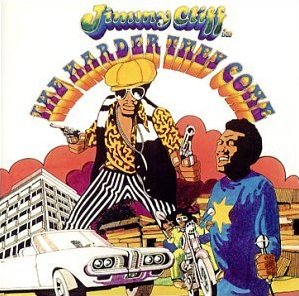
The Harder They Come is the soundtrack album to the film of the same name, released in 1972 in the United Kingdom as Island Records ILPS 9202. It was issued in February 1973 in North America as Mango Records SMAS-7400. It peaked at No. 140 on the Billboard 200. In 2021, the album was deemed "culturally, historically, or aesthetically significant" by the Library of Congress and selected for preservation in the National Recording Registry.

Linton Kwesi Johnson OD, also known as LKJ, is a Jamaica-born, British-based dub poet and activist. In 2002, he became the second living poet, and the only black one, to be published in the Penguin Modern Classics series. His performance poetry involves the recitation of his own verse in Jamaican patois over dub-reggae, usually written in collaboration with reggae producer/artist Dennis Bovell.

Dub poetry is a form of performance poetry of Jamaican origin, which evolved out of dub music in Kingston, Jamaica, in the 1970s, as well as in London, England, and Toronto, Canada, cities which have large populations of Caribbean immigrants. The term "Dub Poetry" was coined by Dub artist Linton Kwesi Johnson in 1976, and further popularized by artist Oku Onoura, which consists of spoken word over reggae rhythms, originally found on the backing or "version" side of a 12 or 7 inch vinyl record.
Michael Smith, usually referred to as Mikey Smith, was a Jamaican dub poet. Along with Linton Kwesi Johnson, and Mutabaruka, he was one of the best-known dub poets. In 1978, Smith represented Jamaica at the 11th World Festival of Youth and Students in Cuba. His album Mi Cyaan Believe It includes his poem of the same title. He had left-anarchist leanings and Rastafarian sympathies, and was allegedly murdered by political opponents associated with the right-wing Jamaica Labour Party (JLP) after he had heckled the Jamaican Minister of Culture at a political rally on 17 August 1983.

Dennis Bovell is a Barbados-born reggae guitarist, bass player and record producer, based in England. He was a member of a progressive rock group called Stonehenge, who later changed name and became the British reggae band Matumbi, and released dub-reggae records under his own name as well as the pseudonym Blackbeard. He is most widely known for his decades-spanning collaborations with Linton Kwesi Johnson.
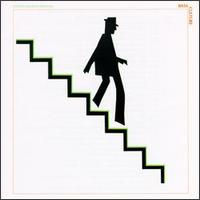
Bass Culture is an album by the Jamaica-born, British-based dub poet Linton Kwesi Johnson, released in 1980 on the Island Records label. It was produced by Linton Kwesi Johnson and Dennis Bovell. Bovell, Lloyd "Jah Bunny" Donaldson and Webster Johnson were members of Matumbi.
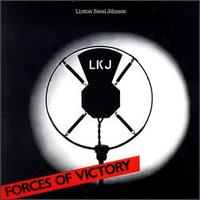
Forces of Victory is the debut solo album by Jamaican dub poet Linton Kwesi Johnson. It was released in 1979 on Island Records.

LKJ in Dub is an album by the Jamaica-born, British-based dub poet Linton Kwesi Johnson, released in 1980 on Island Records. It was produced by Dennis Bovell. It contains dub versions of tracks from the two previous LKJ albums, Forces of Victory and Bass Culture.

Making History is an album by the Jamaica-born, British-based dub poet Linton Kwesi Johnson. It was released in 1984 on Island Records. It was produced by Dennis Bovell.

True Democracy is an album by the reggae band Steel Pulse, released in 1982.
Dick Cuthell is a British musician and record producer. He plays flugelhorn, cornet, and trumpet, amongst a range of other brass instruments, including tenor horn and valve trombone. Cuthell is best known for his work with The Specials and Rico Rodriguez. He also collaborated with bands such as Madness, Eurythmics, Fun Boy Three, XTC, Level 42 and The Pogues. In addition to a range of horns, Cuthell also plays bass, keyboards and percussion and is a composer and arranger.
Stephen Gregory is an English jazz saxophonist and composer. He plays tenor, alto, soprano and baritone saxophone as well as the flute.

May Ayim is the pen name of May Opitz ; she was an Afro-German poet, educator, and activist. The child of a German dancer and Ghanaian medical student, she lived with a white German foster family when young. After reconnecting with her father and his family in Ghana, in 1992 she took his surname for a pen name.

Dread Beat an' Blood is the debut album by British reggae band Poet and the Roots released in 1978 on the Front Line label. It was produced by Vivian Weathers and Linton Kwesi Johnson. The "Poet" is dub poet Johnson and "the Roots" are Dennis Bovell, Lloyd "Jah Bunny" Donaldson, Desmond Craig, Winston Curniffe, Everald Forrest, Floyd Lawson, John Varnom, Lila Weathers and Vivian Weathers. Vivian Weathers and Winston Curniffe were school friends of Johnson's. They all attended Tulse Hill Secondary School. Most of the tracks are based on poems that first appeared in Johnson's 1975 book of poetry Dread Beat an' Blood.
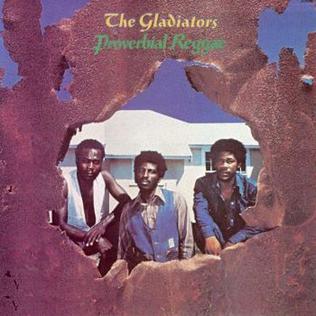
Proverbial Reggae was the second album by Jamaican Roots Reggae band The Gladiators, recorded and released in 1978 on Virgin Records' Front Line imprint.
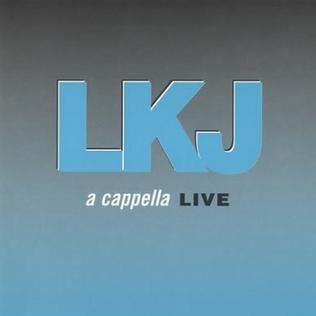
A Cappella Live is an album by Jamaican dub poet Linton Kwesi Johnson released in 1996 on the LKJ Records label. LKJ performs all the tracks, recorded at various venues in 1993 and 1994, without any accompaniment.

Escape Artist is an album by Garland Jeffreys, released in 1981 by Epic Records. The album originally included the EP Escapades. The cover photography is by Anton Corbijn.
John Ogetti Kpiaye is a reggae session and live guitarist. He was a member of The Cats who had a No. 48 UK hit with "Swan Lake", and Matumbi, who had a No. 35 hit with "Point of View ".

Tings an' Times is an album by the Jamaican dub poet Linton Kwesi Johnson, released in 1991. It was Johnson's first album in six years. Tings an' Times also served as the title of a book of Johnson's poetry.















